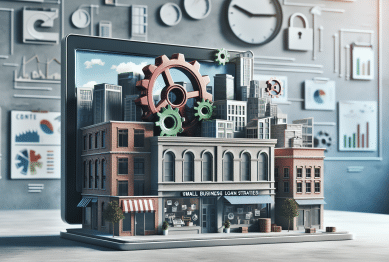In the fast-paced professional world of 2025, emotional resilience has become a cornerstone of career success. Employees and leaders alike are increasingly expected to navigate complex work environments, technological disruptions, and economic uncertainties with confidence. Emotional resilience is the ability to adapt, recover, and grow in the face of challenges. It not only influences mental well-being but also significantly impacts professional performance, leadership effectiveness, and long-term career trajectory.
This article explores why emotional resilience matters, the emerging trends shaping it in the workplace, and practical strategies you can implement to strengthen it. It also highlights the role employers play in fostering a resilient workforce.

What is Emotional Resilience?
Emotional resilience is the capacity to manage stress, recover from setbacks, and maintain focus and motivation even under pressure. It involves more than just staying calm during difficult situations; it’s about understanding your emotions, learning from challenges, and using them to grow professionally.
Key components of emotional resilience include:
- Adaptability: The ability to adjust to new roles, technologies, or unexpected changes in the workplace.
- Stress Management: Maintaining productivity and composure during high-pressure situations.
- Self-Awareness: Recognizing your emotions and understanding how they affect your decisions and actions.
- Positive Outlook: Fostering optimism and persistence even when facing setbacks.
Building emotional resilience doesn’t happen overnight—it requires ongoing practice, reflection, and strategic effort.
Why Emotional Resilience Matters in Your Career
The professional environment of 2025 is characterized by rapid change. Automation, remote work, global collaboration, and market volatility are reshaping the traditional career path. Emotional resilience is critical because:
- It Improves Performance Under Pressure
Resilient professionals are better equipped to manage stress and maintain high performance, even in uncertain conditions. - It Enhances Leadership Ability
Leaders who demonstrate emotional resilience can inspire trust, motivate teams, and navigate organizational challenges more effectively. - It Promotes Career Longevity
Resilient individuals are less likely to experience burnout, making it easier to sustain long-term career growth. - It Encourages Problem-Solving and Innovation
When setbacks occur, resilient employees view them as opportunities for learning, which fosters creativity and innovation. - It Supports Mental Health
By managing emotions and stress effectively, resilient professionals maintain better mental health, which is essential for sustained career success.
Emerging Trends Shaping Career Resilience in 2025
Several key trends are influencing how professionals develop and apply emotional resilience in the workplace.
1. Emotional Intelligence (EQ) in Leadership and Development
Emotional intelligence—the ability to recognize and manage one’s emotions and understand others’ emotions—is increasingly recognized as a key predictor of career success. A growing number of organizations are including EQ as a core competency in leadership development programs. Studies show that professionals with high EQ are more effective at communication, conflict resolution, and team management, all of which are essential for career advancement.
2. Focus on Mental Health and Well-being
Workplace wellness has moved from a “nice-to-have” to a business priority. Companies are investing in employee mental health initiatives, stress reduction workshops, and counseling resources. By promoting psychological well-being, organizations help employees build resilience, reduce burnout, and improve overall productivity.
3. Rise of Resilience Coaching and Professional Development Programs
Resilience coaching has gained popularity as professionals seek structured methods to strengthen adaptability and stress management skills. Programs often include cognitive-behavioral strategies, mindfulness training, and personalized action plans to help employees navigate workplace challenges more effectively.
4. Hybrid Work and Flexibility
The shift toward hybrid work models demands higher levels of self-management and resilience. Working remotely or in flexible arrangements can introduce uncertainty and isolation. Professionals who can maintain productivity, manage stress, and maintain relationships virtually are more likely to succeed in this environment.
5. Continuous Learning and Skill Development
The modern workforce values professionals who can adapt to evolving job requirements. Resilient employees embrace continuous learning, upskill regularly, and are not deterred by changes in technology or job expectations.
Practical Strategies to Build Emotional Resilience
Building emotional resilience is an active process that involves self-reflection, practice, and consistent effort. Here are practical strategies to strengthen resilience and boost career success:
1. Develop a Growth Mindset
A growth mindset is the belief that abilities and intelligence can be developed through effort and learning. Professionals with a growth mindset:
- View challenges as opportunities to improve skills.
- Learn from failures instead of being discouraged.
- Seek feedback to enhance personal and professional growth.
Developing a growth mindset involves reframing failures as learning experiences and actively seeking opportunities for self-improvement.
2. Strengthen Emotional Intelligence
Enhancing emotional intelligence involves:
- Self-Awareness: Regularly reflect on your emotions and their impact on your behavior.
- Self-Regulation: Practice controlling impulsive reactions and staying calm in stressful situations.
- Empathy: Understand and consider the emotions of colleagues and clients.
- Social Skills: Improve communication, collaboration, and conflict resolution abilities.
High EQ allows you to navigate complex workplace dynamics effectively and build stronger professional relationships.
3. Build a Supportive Network
A strong professional network provides emotional and career support during challenging times. Strategies include:
- Finding Mentors: Seek guidance from experienced professionals who can provide insight and perspective.
- Connecting with Peers: Collaborate with colleagues to share experiences, advice, and support.
- Joining Professional Communities: Participate in industry groups and networking events to broaden your support system.
4. Practice Stress Management Techniques
Managing stress is central to building emotional resilience. Effective strategies include:
- Mindfulness Meditation: Improves focus, reduces anxiety, and enhances emotional regulation.
- Regular Physical Activity: Exercise is a proven method to reduce stress and improve mood.
- Time Management: Prioritize tasks and set realistic deadlines to prevent overwhelm.
- Healthy Lifestyle Choices: Adequate sleep, nutrition, and hydration support both physical and emotional well-being.
5. Set Realistic Goals and Expectations
Setting achievable objectives reduces the likelihood of burnout and fosters a sense of accomplishment. Key steps include:
- Breaking Down Large Projects: Divide tasks into smaller, manageable steps.
- Prioritizing Tasks: Focus on what matters most to achieve meaningful progress.
- Adjusting Expectations: Recognize limitations and avoid overcommitting.
6. Learn from Setbacks
Resilient professionals view setbacks as opportunities for growth. Techniques include:
- Conducting a Post-Mortem Analysis to identify what went wrong and how to improve.
- Asking for Feedback to gain perspective and actionable insights.
- Applying lessons learned to future challenges to reduce the risk of repeating mistakes.
7. Maintain a Positive Outlook
Optimism is closely linked to resilience. A positive outlook helps professionals:
- Stay motivated during difficult times.
- Focus on solutions rather than dwelling on problems.
- Inspire and motivate others in the workplace.
Strategies to cultivate positivity include practicing gratitude, celebrating small wins, and surrounding yourself with supportive individuals.
The Role of Employers in Fostering Career Resilience
Employers play a critical role in supporting the emotional resilience of their workforce. Organizations that invest in resilience initiatives see higher productivity, engagement, and retention.
Key Employer Strategies:
- Provide Training and Resources
Offer workshops on emotional intelligence, stress management, and resilience-building techniques. - Encourage Work-Life Balance
Flexible work hours, remote work options, and adequate vacation time help employees recharge and maintain resilience. - Recognize and Reward Efforts
Acknowledging employee contributions builds confidence, motivation, and resilience. - Create a Supportive Culture
Foster an environment where employees feel safe expressing concerns, asking for help, and learning from mistakes. - Implement Mental Health Programs
Access to counseling, employee assistance programs, and wellness resources ensures employees have support during challenging times.
Long-Term Benefits of Emotional Resilience
Professionals who cultivate emotional resilience enjoy several long-term career benefits:
- Enhanced Leadership Skills: Resilient leaders can guide teams through uncertainty and change.
- Career Advancement: Adaptable and resilient employees are often first considered for promotions.
- Improved Job Satisfaction: Ability to manage stress and challenges contributes to greater workplace fulfillment.
- Stronger Professional Relationships: Resilience improves communication, collaboration, and trust among colleagues.
- Sustained Productivity: Resilient employees maintain focus and efficiency even during high-pressure periods.
Case Studies: Emotional Resilience in Action
Case Study 1: Tech Industry Adaptation
In a leading tech company, employees faced major organizational restructuring. Those with high emotional resilience adapted quickly, maintained productivity, and became mentors to others. Their ability to manage stress and embrace change led to promotions and recognition, while less resilient employees struggled with burnout.
Case Study 2: Remote Work Success
A global marketing firm shifted to a fully remote model. Resilient employees thrived by implementing routines, prioritizing mental health, and leveraging digital communication tools. Their adaptability ensured seamless collaboration across time zones, resulting in high performance and team satisfaction.
Practical Exercises to Build Emotional Resilience
- Daily Reflection: Spend 10 minutes each day reviewing challenges, emotions, and responses. Identify one lesson learned or improvement for the next day.
- Gratitude Journaling: Write three things you are grateful for daily to cultivate positivity and perspective.
- Mindful Breathing Exercises: Practice deep breathing during high-stress moments to calm the nervous system and regain focus.
- Role-Playing Scenarios: Simulate difficult workplace situations to practice responses and improve emotional control.
- Mentorship Engagement: Regularly seek feedback and guidance from a mentor to enhance self-awareness and growth.
Conclusion
Building emotional resilience is no longer optional; it is a strategic necessity for career success in 2025. Resilient professionals are adaptable, optimistic, and able to thrive in the face of uncertainty. By developing emotional intelligence, embracing a growth mindset, managing stress effectively, and cultivating supportive networks, individuals can navigate the complexities of the modern workplace with confidence.
Employers who prioritize emotional resilience create high-performing, engaged, and loyal teams. Together, individuals and organizations can foster a resilient workforce prepared for the challenges and opportunities of the future.
References
- Harvard Business Review. (2025, March 25). How to Build Career Resilience in Uncertain Times. Harvard Business Review. Available at: https://hbr.org (Accessed: 13 August 2025).
- National Alliance on Mental Illness (NAMI). (2025). The 2025 NAMI Workplace Mental Health Poll. Available at: https://www.nami.org (Accessed: 13 August 2025).
- Resilience Institute. (2025). Why Becoming a Resilience Consultant is the Ultimate Career Move in 2025. Available at: https://resiliencei.com (Accessed: 13 August 2025).









